An In-Depth Analysis of Alhaitham's Personality

I thought I was done with male attraction after witnessing the most ideal man in the world, but then I met Alhaitham. I will do all in my power to demonstrate to you how rational and smart this man's character design is, with his self-effacing demeanor, practical fighting style, and relaxed approach to work.
Elhasen's cultural stereotypes are quite intriguing and compositional. Rather slow-moving, yet upon examination, highly credible.
The most evident is that his name, Alhaitham, means "eagle" in Arabic.
Alhaitham's name is likely derived from the Islamic Golden Age polymath Ḥasan Ibn al-Haytham, whose name is also Latinized as Alhaitham. He is best known for his work in optics and for establishing a number of core concepts of the modern scientific method, in particular arguing the importance of experimentation and the use of control groups.
This explains why Alhaitham's primary technique is the Chisel-Light Mirror and why light is a theme in all of his skills.
Much like how in Jnagarbha Day, Alhaitham feigned a bout of madness during his confrontation with Azar, legend dictates that the historical al-Haytham did the same to fool Cairene authorities.
When the Egyptian Caliph once asked this man to participate in a project to regulate the flooding of the Nile, he was especially intrigued because, after careful and thorough study, he concluded that the project was impossible to carry out under the circumstances of that time.
Honestly, though, the enraged caliph might have given him a harsh punishment. Therefore, by pretending to be insane, he avoided the harsh penalty and was only given home arrest.

Another of Alhaitham's archetypes is a little less obvious.He was Aristotle, the famous Greek philosopher.
In Cry From the Eleazar Hospital, Alhaitham is shown reading from Aristotle's Physics. The real al-Haytham wrote Treatise on Place (Risala fi'l-makan) critiquing this work.
Several Sumerian words that show up in his idle actions are translated as Telos, Hule, and Dunamis.

The former two phrases are taken from Aristotle's Four Causes, which attempt to demonstrate that everything in the universe has a reason for movement and change.
The material cause(Hule) is the original, natural substance without differentiation. For instance, if the human body is composed of cells, then the human person is a material creation of the cells.
The Final cause(Telos) serves as the procedure's guiding principles. If a house is built with the intention of making a home, for instance, then its primary function is to provide a place for people to live.
The final word, dunamis, stands for potentiality, one of the three main ideas of Aristotelian metaphysics. Potentiality can be roughly defined as the cause of movement and change in objects, a state of randomness full of possibilities, such as a plank of wood having the potential to become a wooden house, a bronze object having the potential to become a sculpture, and so on.
Alhaitham Constellation
Of course, there are a lot of details about Alhaitham's appearance, like the numerous eye symbols that decorate him; these, I believe, can be interpreted in connection with his Vultur Volans Constellation. Not only does this sign indicate Heshmu, but Horus, the falcon-headed god of Egyptian mythology, and his significant symbol is the Eye of Horus, which stands for supreme sovereignty and divine blessing.

The Jesus fish, which is comprised of two circles that overlap one another, is another noticeable emblem on Alhaitham's body.
Christians once used this sign as a code phrase to get away from religious persecution under the Roman Empire. The symbol is a fish-shaped Greek word, "ΙΧΘΥΣ," which is made up of the initials of five words that represent the central ideas of Christianity. For this reason, early Christians liked to utilize it as a code word to communicate with each other.

We now return to Alhaitham's Skill Constellations.
1.Normal Attack:Abductive Reasoning
The process of reasoning that was first put out by Aristotle and refined later on is essentially a series of inquiries that are followed in order to identify the underlying cause of an issue.
For instance, a small building's external wall has severe corrosion that has to be painted frequently. Since the corrosion has returned, painting again may be the correct idea.
However, abductive reasoning necessitates identifying the source, thus the question becomes, "Why is there corrosion?"Because the cleaning crew used a highly corrosive cleaner. Why did the cleaning team use that? Because a lot of bird droppings are stuck to that wall and are impossible for regular cleaners to remove. Why are bird droppings present? due to the large number of pests on the wall. Why do bugs exist? Since the house's windows aren't covered, turning on the lights at night will draw a lot of insects. As a result, rather than painting the issue, the remedy now involves hanging curtains, tackling the root of the issue directly.
2.Elemental Skill: An Elaboration on Form
The common phase is viewed by Plato as a kind of flawless, timeless concept that exists regardless of the intricacy of sense objects. The numerous items in the world are duplicates of the ideal concept.
3.Elemental Burst: Fetters of Phenomena
This word, which also has philosophical connotations, is the complete opposite of universal sense, which is apparent and refers to things that exist on an individual basis.
It can be likened to the philosophical connection between the general and the specific.
4.1st Ascension Passive: Four-Causal Correction
The four-causal are the same as those listed by Aristotle earlier. Correction, which refers to revised stubbornness.
5. Utility Passive: Law of Reductive Overdetermination
This one combines two computer science algorithmic terms: Reduced Approximation Computing and System of Transcendental Definite Equations, respectively.
As you can see from the analysis of Alhaitham's design above, they are all connected to philosophy, science, high intellect, objective knowledge, and other forms of wisdom. From Greece to Arabia, philosophy to science, optics to computers, Alhaitham's designs appear to be quite varied yet fundamentally very similar, signifying the total objectivity and rationality of humankind.

Below, I'll go over some of my own observations on Alhaitham.

All scholars seek knowledge and the truth. Some do so for fame, while others, for ambition. And some others enjoy conquering knowledge and the truth, transcending them, and savoring the sense of superiority in the process. Alhaitham isn't any one of them. He is only driven by what intrigues him. He believes that many scholars have already become lost in their pursuits, taking the truth as a tool or even a shortcut to self-realization.
Although he may come across as cold and calculating, if you look closely at what he does, you will notice that he has always solved issues for others at the lowest possible cost by helping people and asking for little to nothing in return.
His parents died very early in an accident, and he was raised by his grandmother, a Kshahrewar scholar.
To Alhaitham, "to be self-taught" means to read, break down, reorganize, and question. Due to his family background, he was lucky to be exposed to books made of paper. Interestingly enough, he takes more pleasure in reading his grandmother's hard-copy collections than obtaining knowledge from the Akasha directly.
As opposed to the Akasha, books are inflexible and rigid, and there is no guarantee that their contents are error-free either. To use such a medium of knowledge is to dance with potential misinformation. The majority of people in Sumeru hate this, but Alhaitham derives great enjoyment from it. It was from reading that he acquired the ability to learn, analyze, and even rectify, and ultimately, he has learned to question. If the rustic and primitive method known as reading is ever any trouble, it is trouble that Alhaitham appreciates.
Knowledge is to be recognized, pursued, and trusted, but one should never forget to question it. Perhaps only those who come to such an understanding will not be easily moved by Canned Knowledge and other convenient knowledge media.
Years later, when Alhaitham moved into his new house, he brought all those books over. While sorting through them, he flipped through a few that he had read long ago. The journals that had well-wishes written on their title pages were from his mother's collection, and the ones with reference materials inserted between pages and notes on the margins had once belonged to his father. On top of them, there was a thick book with an exquisite, emerald-colored cover. On the title page, his grandmother had written thus: May my child Alhaitham lead a peaceful life.
Just like his business card stated, I sensed in him a strong energy that belonged to mankind.
"The only things researchers should abide by are debates and dialectics. Only by questioning everything at all times can one avoid falling into prejudice."
















![[Official Merchandise] Alhaitham Impression Tote Bag of Forest and Sand Collection](http://genshinfans.com/cdn/shop/files/Alhaitham-Genshin-impact-Tote-Bag_165x.jpg?v=1718094435)
![[Official Merchandise] Alhaitham Impression Tote Bag of Forest and Sand Collection](http://genshinfans.com/cdn/shop/files/Alhaitham-Genshin-Tote-Bag_165x.jpg?v=1718094435)


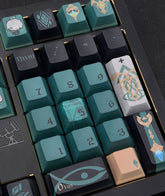

![[Official Merchandise] Alhaitham Impression Short Sleeve Shirt](http://genshinfans.com/cdn/shop/files/Alhaitham-Short-Sleeve-Shirt_165x.jpg?v=1718249588)
![[Official Merchandise] Alhaitham Impression Short Sleeve Shirt](http://genshinfans.com/cdn/shop/files/Alhaitham-Genshin-Shirt_165x.jpg?v=1718249588)
![[Official Merchandise] Alhaitham Impression Necklace / Bracelet](http://genshinfans.com/cdn/shop/files/Genshin-Impact-Alhaitham-Bracelet_165x.jpg?v=1718182625)
![[Official Merchandise] Alhaitham Impression Necklace / Bracelet](http://genshinfans.com/cdn/shop/files/Genshin-Alhaitham-Necklace_165x.jpg?v=1718182626)
![[Official Merchandise] Alhaitham Impression T-Shirt Of Forest and Sand Clothing](http://genshinfans.com/cdn/shop/files/Green-Alhaitham-T-Shirt_165x.jpg?v=1718255852)
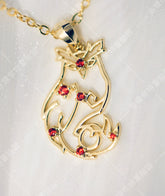
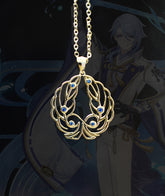
![[Official Merchandise] Alhaitham Impression Travel Size Perfume Gift Set](http://genshinfans.com/cdn/shop/files/Genshin-Alhaitham-Travel-Size-Perfume-Gift-Set_165x.jpg?v=1718259243)
![[Official Merchandise] Alhaitham Impression Travel Size Perfume Gift Set](http://genshinfans.com/cdn/shop/files/Official-Alhaitham-Travel-Size-Perfume-Gift-Set_165x.jpg?v=1718259243)




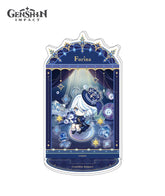
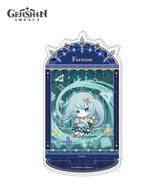












![[Official Merchandise] Genshin Impact Theme Quicksand Acrylic Ornaments](http://genshinfans.com/cdn/shop/products/ZT02_4538f0c0-a8cf-4afd-b0c9-39417e5ae73e_165x.jpg?v=1692954482)
![[Official Merchandise] Genshin Impact Anecdote Series:Quicksand Acrylic Ornaments](http://genshinfans.com/cdn/shop/products/11_0acb54af-cfae-4cbf-aa65-9cc8aef81fe9_165x.jpg?v=1694498962)
![[Official Merchandise] Genshin Impact Anecdote Series:Quicksand Acrylic Ornaments](http://genshinfans.com/cdn/shop/files/ZT02_b6213f25-07f4-484e-a883-ee96693cc3cf_165x.jpg?v=1694498558)

